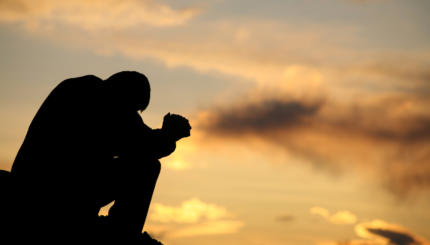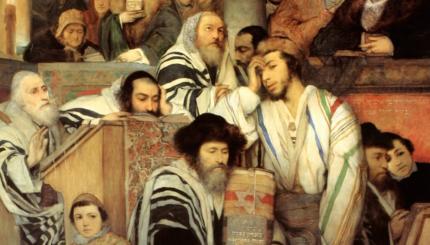In addition to being a means of expression for worship, prayer is also a statement of belief. As such, it not only is designed to articulate one’s own principles of faith but also is an attempt by the normative majority "to counter dissidents and sectarian minorities."
Liturgical examples in Judaism include the following:
• Yigdal, a poetic rendition of Maimonides’ "13 Principles of Faith."
• Elohai Neshamah, which emphasizes the purity of the soul that God directly breathes into a person and, by implication, refutes the Christian doctrine of original sin.

Help us keep Jewish knowledge accessible to millions of people around the world.
Your donation to My Jewish Learning fuels endless journeys of Jewish discovery. With your help, My Jewish Learning can continue to provide nonstop opportunities for learning, connection and growth.
• The second blessing of the Amidah, which repeats six times the doctrine of resurrection (denied by the Samaritans and Sadducees).
• The verse, "Who forms light and creates darkness, makes peace and creates all things" (Isa. 45:7), attacking the dualist Persian (Zoroastrian) religion that believed that the world was created and preserved by two opposing forces, light and darkness, which manifest their existence in good and evil, respectively.
• Removing the Ten Commandments from the daily service, in opposition to the Pauline Christians, who accepted them but rejected the authority of other Torah laws.
Several polemics were introduced against the Karaites, who followed the literal meaning of the Bible and denied rabbinic interpretation of the text. The Rabbis introduced a special blessing over the Sabbath lights, and the Geonim inserted into the Friday evening service a recitation of Ba-meh Madlikin (With what may we light), a mishnah that discusses which types of wick and oil should be used to provide the home with light on the Sabbath (Shab. 2:1, 20b).
These practices, in direct opposition to the Karaite ritual of extinguishing all lights before the Sabbath and spending the day without heat or light, were designed to indicate unequivocally that having lights burning in one’s dwelling was not merely permitted but a positive commandment.
Torah
Pronunced: TORE-uh, Origin: Hebrew, the Five Books of Moses.


